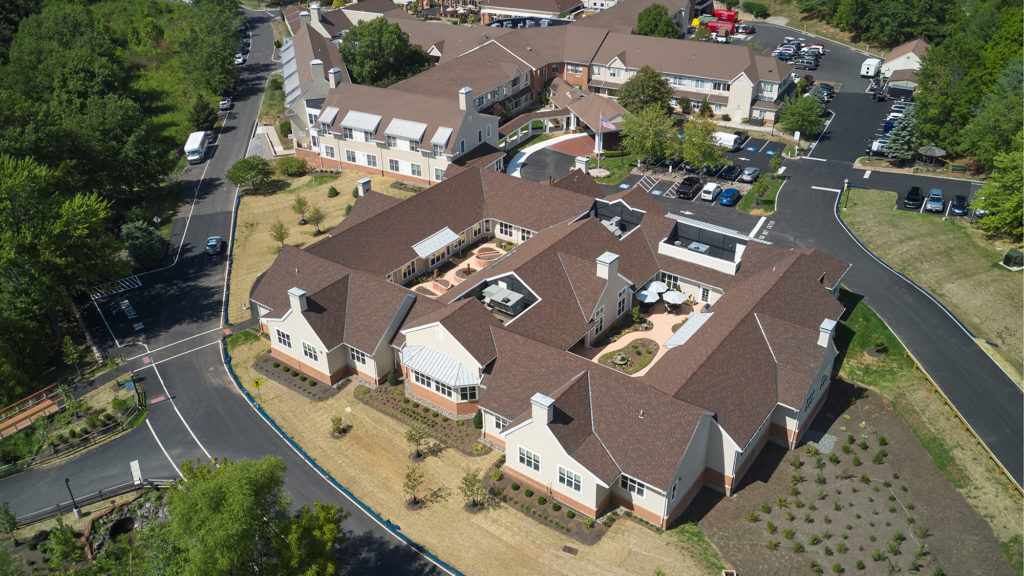
STAND-ALONE MEMORY CARE
Meadowood – McLean Memory Care
The McLean Memory Care design is based on recent global research indicating that people living with dementia who are exposed to gardens and natural light have improved moods and slower progression of symptoms. The provider and design teams collaborated to combine a biophilic design focus with outcomes-focused programming and technology resources to foster positive life experiences and authentic interactions for people living with dementia.
The human-scale residence allows people living with dementia to enjoy the basic tenants of independence, choice and control. Design techniques in volume hierarchy, color, interior finishes, and artwork reinforce the identity and specific purpose for each space. For example, cathedral ceilings in the spacious living and dining rooms identify these spaces as more public activity hubs while the more intimate private dining and small activity rooms have lower ceilings signifying quieter alternatives. Likewise, service, care base and utility doors are discreetly oriented away from resident circulation to curate an environment that aligns with home versus an institution. The transparent walking loop provides natural circulation with art walls, courtyard views and open common spaces.
The design concept supports staff training in the GEMS Positive Approach to Care philosophy of Teepa Snow, a renowned dementia expert. The physical result is distinctly programmed indoor and outdoor spaces to allow for personal choice, purposeful experiences and positive interactions.
Biophilic design inspiration is expressed through natural materials, daylight connections and garden views on all sides. The building interior is enlivened with acoustical wall panels of varying shapes and colors, vibrant light fixtures and tactile artwork to provide texture and visual interest.
Tethering the memory care small houses to the health center avoids isolation of a stand-alone residence, provides staffing efficiencies and fosters connections. The diverse indoor and outdoor spaces encourage socialization. A private dining room provides break-out space for family celebrations.













